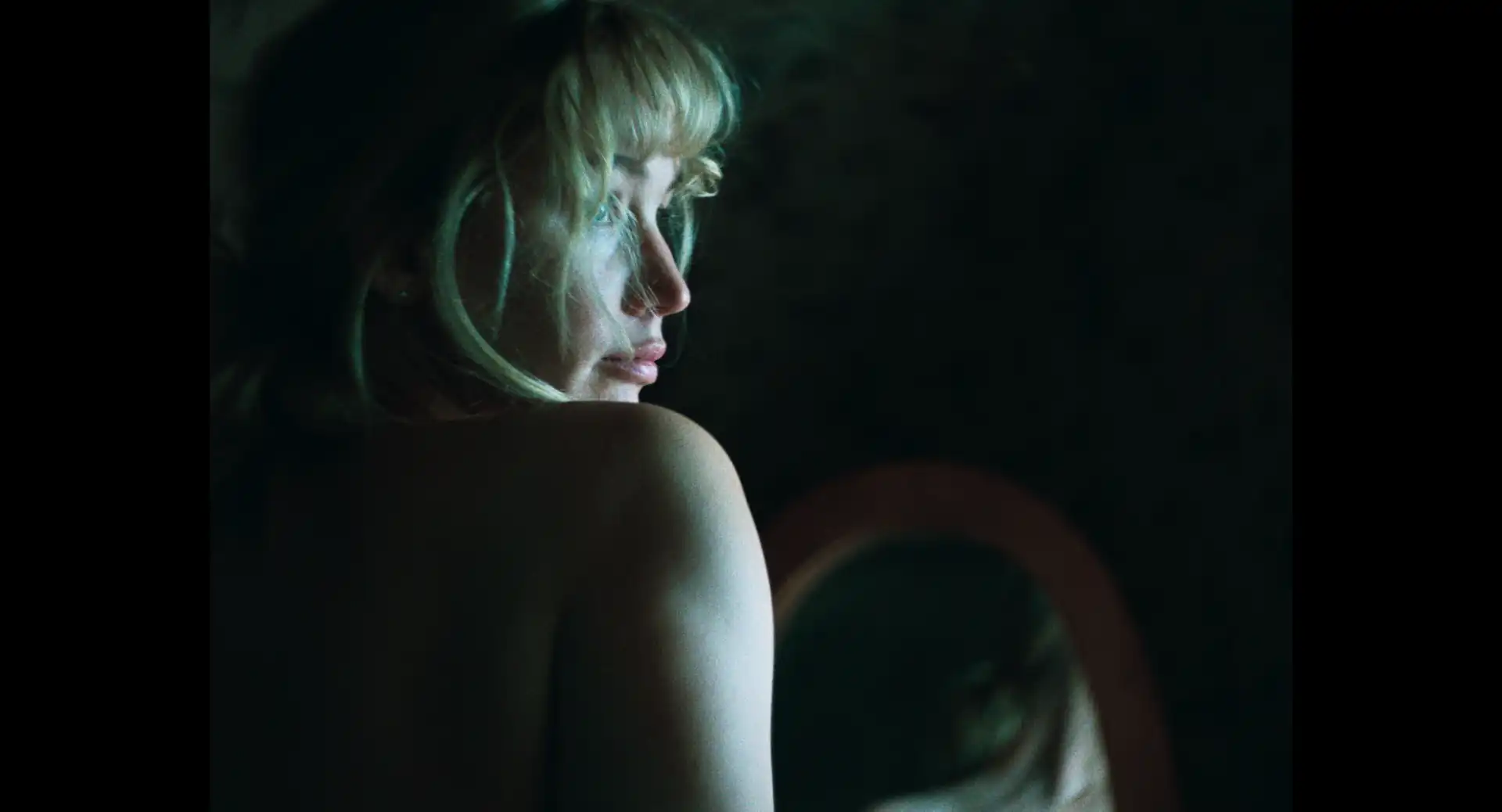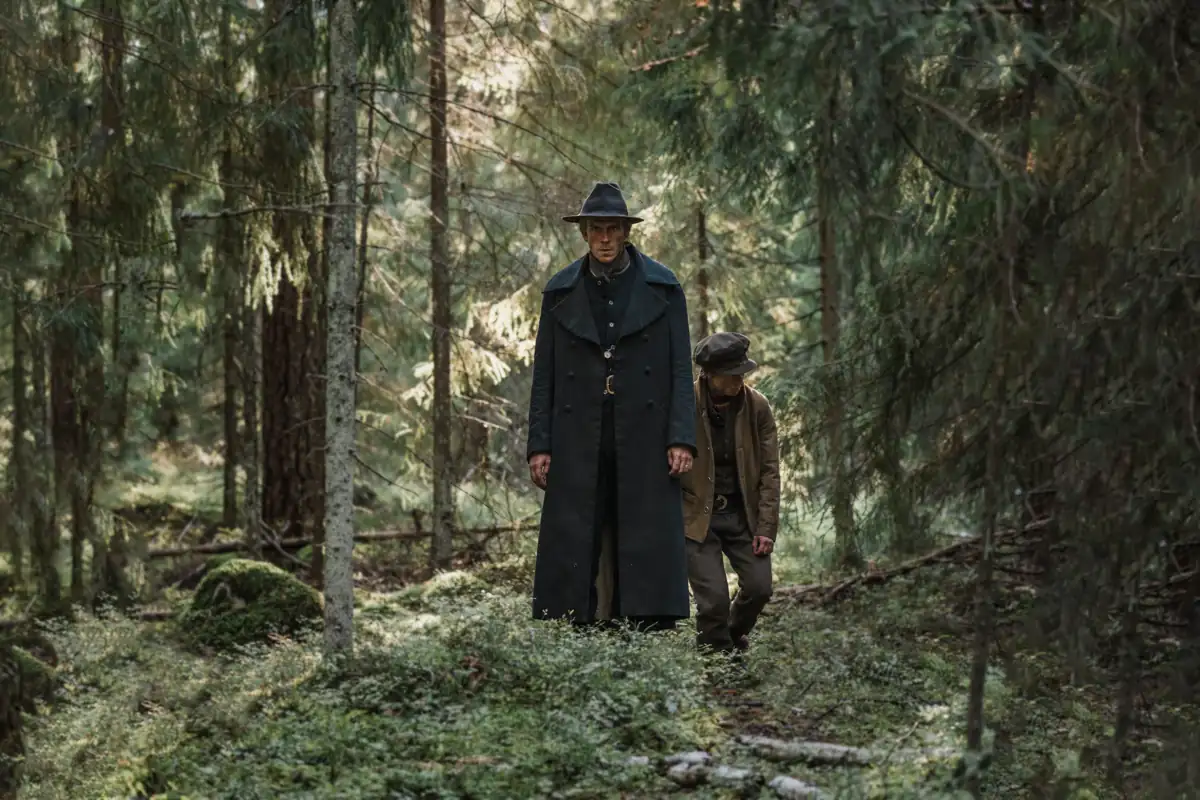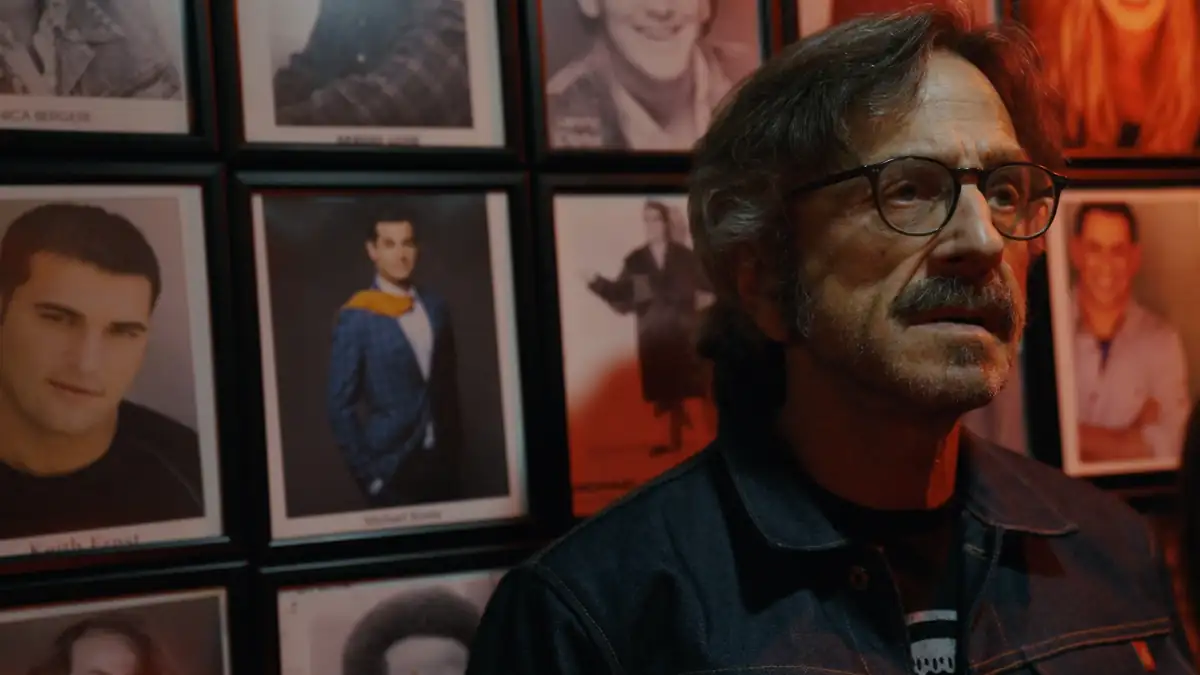Jennifer Lawrence is fearless and brilliant in a film that never lives up to her staggering performance.
When we first see her, Lawrence's Grace prowls the yard of a run-down country house like a panther. She rolls playfully in the dirt as her husband, Jackson (Robert Pattinson), idly cares for their child. It's weird and off-putting, yet Lawrence's performance, which is raw like an exposed nerve, keeps us hooked. Whatever the rest of the film is, she's never boring.
Then, Lawrence pees on the floor. She spits beer to go along with it. She drips breast milk onto notebooks and watches it mix with the ink. She drools and hisses and loudly, repeatedly, demands Pattinson to fuck her. About a half hour in, we realize this is all there is to the film. Lawrence, who is committed in a way that demands attention, gives it her all. Everyone else is coasting, especially writer and director Lynne Ramsay, who has nothing interesting to say about her subject.
For two hours, we watch as Grace deteriorates into an increasingly animalistic state. Is it Postpartum Depression? Bipolar disorder? Mania? After the first screening, you could throw a stone and hit twelve different interpretations. All of them equally valid, which says more about how little we understand mental health issues than it does about the quality of the film.
In the end, because Die, My Love refuses to make assertions or provide explanations, it becomes a little bit of a everything. A blot test for the audience, which is some kind of an achievement, but has always felt a little lazy for this critic. After all, a film should have a point of view. Asking: "Well, what do you think?" usually means the filmmaker didn't do the work we require of them.
There's also something iffy about Ramsey's depiction of mental illness that comes with these uncertainties. Die, My Love begins and ends with a raging forest fire that serves as a metaphor for Grace's self-destructive tendencies. At first, it wouldn't be far fetched to read it as the burning desire within her. Later, it's far easier to accept it as Ramsey saying that some people just need to let themselves burn out and we can't – and shouldn't – help them.
Is that an unkind reading of the material? Perhaps, but the vagueness of the film doesn't fight against it. As someone with chronic anxiety and a clown car's worth of mental disabilities, it's where my thought process went. I felt bad for Grace. She's trapped in a story where the narrator doesn't care for her. At least not beyond the spectacle she makes of herself. As long as she provides shock value, Ramsey can't get enough.
It's an oddly exploitative result that doesn't feel intentional. Instead, it's the culmination of Ramsey insisting on vibes above plot or even an inkling of narrative. Even as Grace visits a shrink – a solid location for exposition dumps in films – Ramsey introduces new reasons for her calamity, as if to say: "Well, what isn't wrong with her?"
There's a chance a lot of the subtext has been lost in translation. Die, My Love is based on the Spanish-language book Matate, amor, by Araian Harwicz. In it, the narrative emphasizes internal monologues and the alienation that comes living in a foreign land. In Ramsey's adaptation, it's never clear where we are or how we got there. Every implication of family matters teeter on the edge of the surreal. As if normality is a fever dream Grace can't quite get a handle on.
On a more visceral level, Ramsey fills her movie with loud jump scares, cuts, and hostile use of audio. For neurodivergent viewers, Die, My Love is a repellent experience. It intentionally assaults the audience with every trick imaginable to make the experience uncomfortable. There is certainly some truth in depicting the world as a loud and hostile place, especially when you're suffering from depression. But Ramsey's insistence on making that the singular trick in her bag means her depiction is one-note and shallow. Everything that depression, especially when coupled with comorbidities, isn't.
Die, My Love is a film that's more interesting to argue about than it is to watch. Mostly because cinema is still in its infancy when it comes to depictions about depression, and especially women's mental health. But it's lurid and leery when it should be empathetic; prickly and petty when poignancy would reveal more. In a way it achieves everything Ramsey sets out to do. It's just those results are so reductive I can't see them as a victory of any kind.













